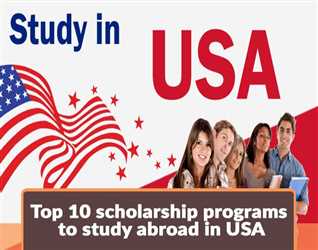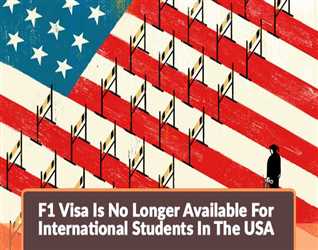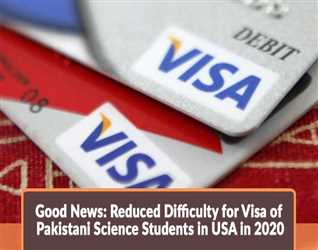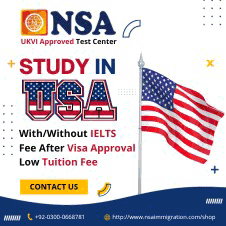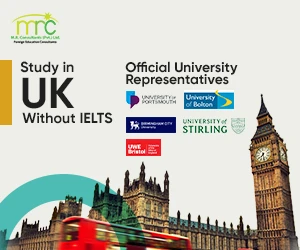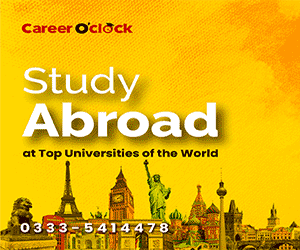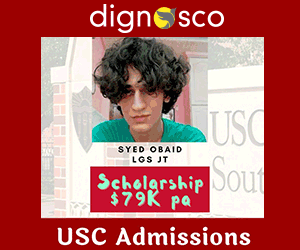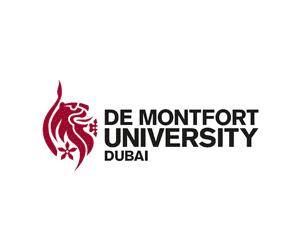Thursday — February 16, 2017
By:Study Abroad

3886

0
USA is without a doubt best country for higher education. Even in the 2016 ranking USA was ranked the most top country for higher education. It is, after all, home to the most top universities of the world. More than 6 universities in the  top 10 universities of world are located in USA. Currently in all fields of education, USA has proved its metal and it is leading in the latest technologies and research. Studying abroad in USA will bless you with the best development and grooming possible. USA is such a country where you can easily find many other foreigners from your country as it is considered a country of immigrants.
top 10 universities of world are located in USA. Currently in all fields of education, USA has proved its metal and it is leading in the latest technologies and research. Studying abroad in USA will bless you with the best development and grooming possible. USA is such a country where you can easily find many other foreigners from your country as it is considered a country of immigrants.
So, the question is how we get the opportunity to study in such a fabulous education system. As for the opportunity, it is right in your hand and you just have to avail it. We study abroad team will guide you how you can avail it. You must be aware that in order to move to an abroad country, you must first acquire the visa of that country. There are different types of visas for a particular country. If you want to go there for education then you get hold of Student Visa. There can also be different of student visas but to study in USA, you should get F1 visa.
If you are going to study in a university, college, school or any other academic institution (whether private or public) for education or training, you will need an F1 visa. This visa is for full time students and not a work visa. However, you are allowed to work up to 20 hours a week in sessions in campus and full time in holidays. Before you start working, you need approval from the Department of Homeland Security and the International Office in your university. In addition, you can apply for permission to work Off-campus for up to 12 months in a field relevant to your studies. This special permission is known as Optional Practical Training. Keep in mind that this work is allowed to help students that financially weak and must not be seen as opportunity for foreign employment.
F1 visa holders are eligible to transfer schools. International students can transfer to another university from where they were first studying but for that you must first complete or leave your current program and also have a confirmed admission in the other institution.
F1 visa holders are also not forced to leave USA right after their programs ends but they have an extension of 60 days. If you still wish to remain more in United States after your has completed then you should change your Visa status and get admission in another study program in some academic institution. If you have any confusion there, you are provided an academic advisor in your university for your counseling.
How to Get F1 Visa:
It is always better to starting working on it as soon as possible because F1 Visa can be really time consuming, however, it is a simple process. The very first step toward a student visa is to get admission in a university of your choice in USA. You must first research and find a university that suits you. Not every university has facilities to handle international students so whatever institutions you select make sure that they are listed and approved by Student and Exchange Visitor Program (SEVP).
Once you have selected an institution then comes the phase to apply for admission. You can get admission in a foreign university by two ways. First is to acquire assistance of a Study Abroad Consultant as they have their agents in USA. They will take all required documents from you submit in the university selected and after that inform you of the result. We have a number of Pakistan’s most successful Consultants, click the link to find one in your city of your choice. In addition, you can submit the inquiry in the box at right side and our consultants will contact you to guide you free.
Second way is to apply online. You should the official website of the university and find the admission tab. You might have to file out an application, write an essay, provide reference (optional) and submit soft copy your documents. In addition, you may have to registration fee online.
If you get admission you will receive acceptance from the university then you will be officially registered into the SEVP and will be required to one-time application fee. Once all the dues are clear then your educational institute or department will provide you a form known as “I-20”. With this form you can schedule an interview appointment with a US embassy or consulate most near to your area for the F1 visa. You can only apply for student visa when you have this document from a university.
After applying for the visa, you will have to go through a formal procedure of selection by the embassy. This also includes a call for interview. In interview they will ask different type of questions that can be easily passed then you get your visa and become an official international student.
Required Documents for F1 Visa:
You will need the following documents to apply for F1 visa at US Embassy or consulate. This whole processing will take almost 2 months and cost you about $160.
1. Valid Passport
2. Nonimmigrant Visa Application Form DS-160
3. Original Educational Documents with four set photocopy.
4. Form “I-20” (provided by university)
5. Three Stamp Paper
6. Two Passport size Photograph with white background.
7. Property Documents
8. Visa documents from College.
9. Ticket Confirmation
10. If you are self-employed, evidence of your business activities and financial standing;
11. Tax Certificate & Last two or three years tax returns.
12. Last Three Months Bank statements with bank manager‘s letter. Balance must cover at least one year fee and living cost in USA.
13. Experience Letter, NOC or Short Courses Certificate if student have gap in education. (if any)
Qualifications for F1 Visa:
In order to be eligible for the F1 visa, you must prove the following as your qualifications. These are not some university grades or GPA but without these you will not get the F1 visa. You will have to prove these during your interview at embassy.
1. Have an official place to live in USA and intentions to return home
2. You must strong connections with your home country
3. Admission to SEVP approved institution
4. You must have sufficient financial resources or support to cover your expenses.
Go to our News and Events for more Latest Informative and Interesting Articles
Want to Study Abroad? Still Confused? Here is Complete Information on every country and their Study Abroad Guide
 top 10 universities of world are located in USA. Currently in all fields of education, USA has proved its metal and it is leading in the latest technologies and research. Studying abroad in USA will bless you with the best development and grooming possible. USA is such a country where you can easily find many other foreigners from your country as it is considered a country of immigrants.
top 10 universities of world are located in USA. Currently in all fields of education, USA has proved its metal and it is leading in the latest technologies and research. Studying abroad in USA will bless you with the best development and grooming possible. USA is such a country where you can easily find many other foreigners from your country as it is considered a country of immigrants.



.gif)


 3886
3886
 0
0
